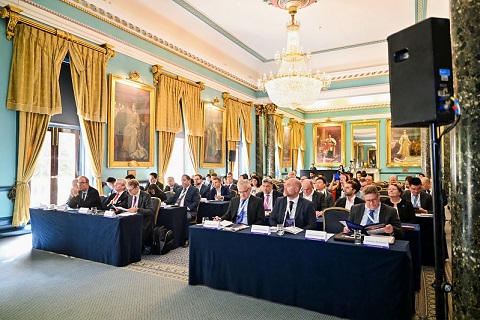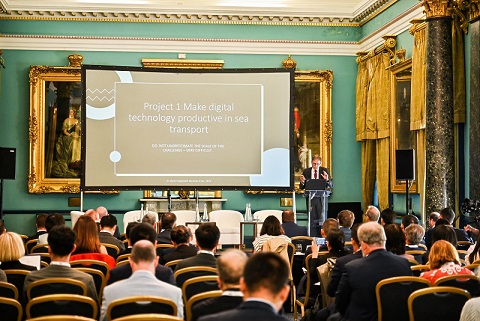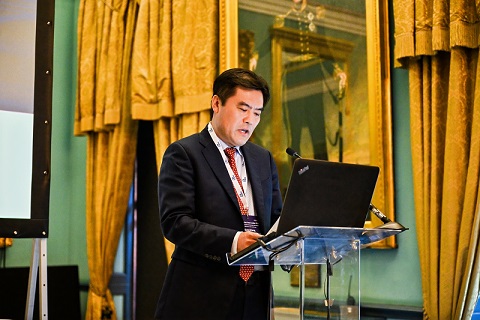China-UK maritime collaboration in focus at London shipping forum

The "Xinde Marine Forum London 2024 – Innovation and Cooperation for the Sustainable Future of Shipping" took place on Sept 20 in London, attracting over 120 senior executives, experts, and government representatives from China, the United Kingdom, and across Europe to discuss the future of the global shipping industry with a focus on sustainability and innovation.
Organized by Xinde Marine News and supported by leading organizations including the China Shipowners' Association, the Chinese Shipping Association of London, COSCO SHIPPING UK, the International Association of Dry Cargo Shipowners and the International Chamber of Shipping (ICS), the forum provided a platform for dialogue on emerging trends and collaborative efforts for a greener, more sustainable shipping sector.

A key theme throughout the event was the critical role of international partnerships and technological advancements in addressing environmental challenges within the shipping industry. The forum also underscored the need for stronger ties between China and the UK, particularly in the areas of sustainable development, innovation, and strategic cooperation.
The forum featured four thematic sessions: Uncertainty and New Opportunities, Shipping Finance and Investment, Innovation and Green Transformation, and Collaboration for Sustainability. These sessions covered major issues poised to shape the future of global shipping, including decarbonization, digital transformation, financial investment, and global cooperation.

During the forum, Wang Gang, Chief Executive of COSCO SHIPPING UK, highlighted the critical role of innovation and collaboration in advancing sustainability in the shipping industry. He said: "At COSCO SHIPPING, the company is deeply committed to integrating social responsibility into its corporate values, aligning with global trends toward green, low-carbon, and smart shipping. COSCO SHIPPING is leveraging digital technology across its operations and actively innovating in new energy solutions and low-carbon emission-reduction technologies."
Wang emphasized COSCO SHIPPING's role as a leader in sustainable development, particularly in the UK and Europe, with a strong focus on green and digital advancements. The company is dedicated to implementing Environmental, Social, and Governance (ESG) initiatives, integrating them into its fleet operations, supply chain logistics, and growth strategies, he added.
Nelson Mojarro, head of innovation and partnerships at International Chamber of Shipping, emphasized the emergence of various new technologies in the shipping industry, some of which are already entering the market. He highlighted the critical role of upcoming regulations from the IMO in driving these technologies forward and creating opportunities.
While there is growing interest in alternative fuels, particularly in China, he said challenges remain in linking fuel production with areas of demand. Mojarro noted that significant progress is being made in fuel classification, but the industry is still in the early stages of scaling up these technologies, not just in China but globally. "Collaboration will be key to further development," he said.
Andreas Enger, CEO of Hoegh Autoliners, pointed out: "Deep-sea shipping accounts for 80-90 percent of the shipping industry's carbon footprint, making it the most critical area to address in reducing global emissions. Larger vessels, due to their size and scale, are more capable of adopting new technologies for emission reduction."
While smaller ships that cover shorter distances can also explore innovations like batteries over time, the priority should be on decarbonizing deep-sea shipping first, he said. "Smaller vessels face different challenges and won't achieve the same impact as larger ones in cutting emissions, so focusing efforts on deep-sea shipping will have the most significant effect on reducing the industry's overall carbon footprint," Enger added.
Source: Wang Mingjie, China Daily
